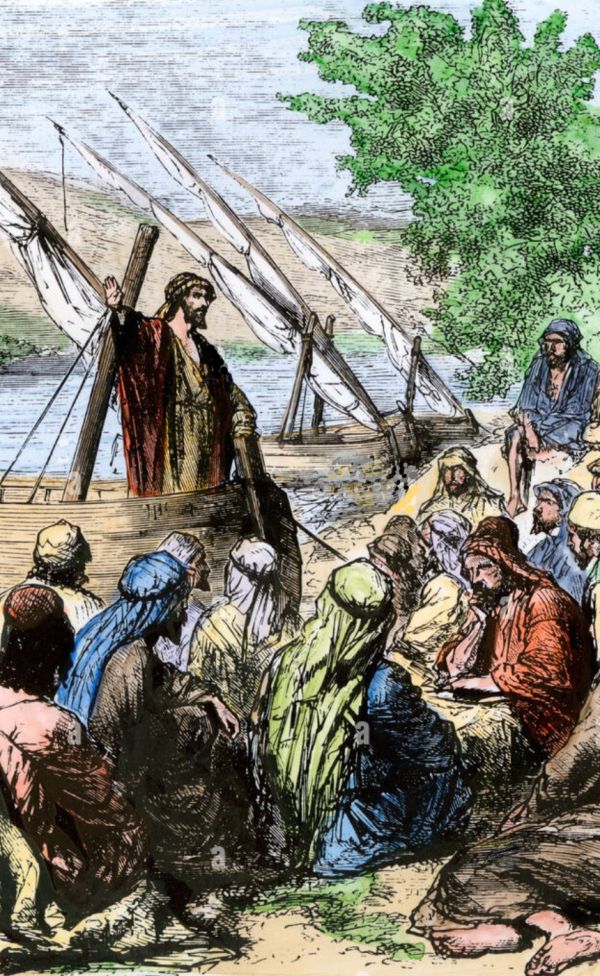(Mk 6:30-34)
«Come yourselves aside, to a deserted place»: the explicit reference to the «desert» is that of Exodus - which recalls the time of first Love.
Experience of great Ideals that the path of Freedom could still infuse in a new People.
An offspring generated in silence, far from the hustle and bustle of idols: in guise of reflection and attention, sobriety of life, hospitality, real sharing.
Jesus is increasingly moving away from his environment, and does not want around him a horizon of elected, attracted by the suddenly exploded visibility - ending up considering themselves indispensable.
In fact, here they chase the many things to be done, but remain careless. They raise a great fuss, but stay in habit.
Then the Lord does not call «aside» for a "spiritual retreat". The apostles - who give themselves the air of ‘teachers’ (v.30) - receive the only task of «announcing», not of supervising, presiding over, coordinating others.
Even after failure in Nazareth (vv.1-6) - his heralds willingly confused the Servant who was educating them, for the victorious, hoped, respected, glorious Messiah.
That is why, faced with masses in need of everything, the Lord first «began to teach» (v.34).
In short, the young Rabbi must start all over again, in order to correct the illusory frivolities conveyed by the followers… maybe just to leave a trace, get recognized and succeed - with lost people!
Jesus’ closest collaborators had not yet understood that there is another World, evolutionary and upside down - but ignored.
For this reason they have a fortune of their own, but they produce a lousy evangelization; without creative energy.
The crowds thronging around the Lord still remained exactly such and as before: «like sheep that have no shepherd» (v.34). People steeped in dismay.
Despite the circle’s affirmation of the disciples who had focused on the model of subservience and prestige, humanity still cried out.
Their ‘stability’ made others even more insecure.
It lacked all the friendship that nourishes more than food, a perception of adequacy that satisfies more than health; the adherence that conveys life.
And the sense of one’s own being born and seeking. The Encounter that makes one’s gaze shift; the intimately recognized union with the Truth.
Apostles or not apostles, without the very Person of Christ, those women and men who sought their roots would not have flourished - least of all starting from their own grey, fragile, lacklustre shades.
The deep demands of the troubled were absolutely intact, despite the leaders’ busy schedule - an intense occupation around... unfortunately artificial and inattentive, still ambiguous and immature, dirigiste and superficial.
This, on the other hand, is the real holiday, the authentic decisive Appointment: to remain with the right Person; the one that does not enervate with its external rhythms, nor does add confusion to confusion.
In short, in the [established or fashionable] reference, no person is cradled in his or her novelty, or balanced and regenerated.
Enough, then, of the many 'models' without soul or prophecy that reproach us - and the commonplaces that anaesthetise.
In fact, in each of us, every expedient or artifice triggers the opposite: a loss of capacity.
«Like sheep that have no shepherd» (v.34).
In preparing us for the metamorphosis that belongs to us, the Friend of the Journey does not always intend to analyse and control.
Thus he does not extinguish the small energies, the character, the unique projections, the silent actions, and the Enchantment.
Letting us breathe, only the authentic Shepherd collects our 'core' from dispersion, our Seed from fragmentation; our Flower, from life without intimate purpose.
[Saturday 4th wk. in O.T. February 8, 2025]












